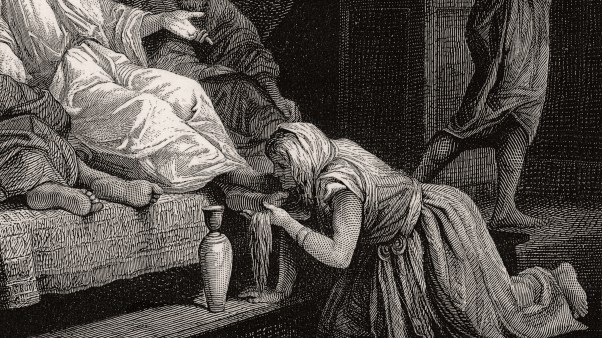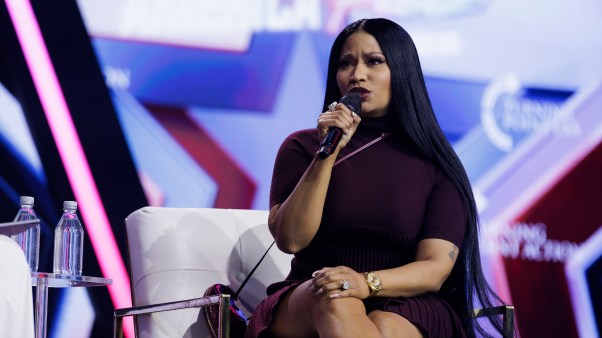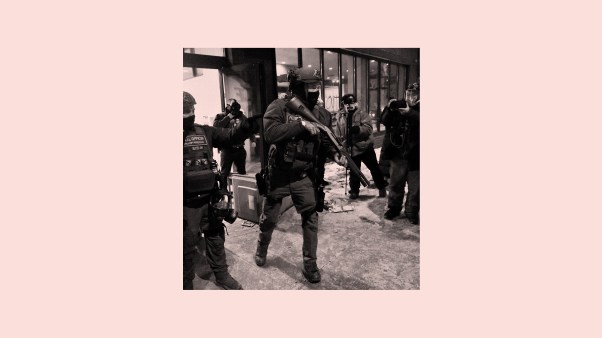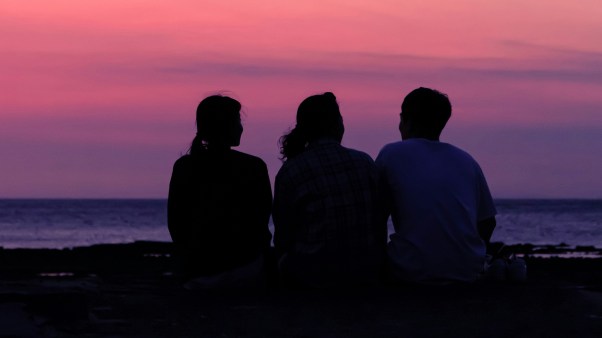I woke up to a face full of sunshine. Time was ticking on my last day at my friend Irene’s family cottage on the lake. I needed everyone up so we could make the most of the morning and squeeze in one last round of tubing before my parents picked me up.
Eight of us piled into the boat as the lake sparkled in the morning sun. I silently declared this to be the best weekend of my 15 years of life. My tubing enthusiasm won me the first turn, and after a long effort of flying across the water behind the speedboat, I got tired, hit a wave, and fell off. I treaded water as I waited for the boat to circle back and pick me up, like it always did.
But this time, something was wrong. The boat was coming toward me way too fast. I later learned that there had been a miscommunication—the driver had no idea I was in the water.
In the moment, I was surprised by my lack of panic. I assessed my options and decided my best shot at survival was to surface dive, going far enough below to miss the propellers. It was a good plan. But I forgot to factor in the life jacket. The thing that was meant to keep me safe, with zips and clips that I couldn’t escape, meant I couldn’t get under.
I knew how lucky I was to resurface. I also knew something was very wrong. Water was swimming inside my body in places where it shouldn’t be. I tried to see my injuries after my friends pulled me out of the water, to know what I was dealing with, but every time I tried to look, a pair of hands firmly held my shoulders back against the deck.
My friends tried their best to protect me, telling me that everything was fine and that I was going to be okay, not realizing that the truth was written all over their faces: We were hours away from a hospital, and I didn’t have hours.
I’ve loved sports for as long as I can remember. I grew up doing everything from swimming to playing basketball, volleyball, and tennis. Then when I was 13, I was introduced to rugby. From that moment on, my life’s dream was to be an international rugby superstar. I caught the eye of some of the national coaches, and it looked like this ridiculous dream actually had a shot at coming true.
I had big dreams and plans, and I didn’t want anything to get in the way. Including God.
My family was a little bit Christian, and most of what I knew about God came from attending a Christian school. But my biggest concern about religion as a teenager was that God might suggest a path I didn’t want to take. I figured it was better not to ask God for his opinion than to ask and not take it.
So I decided to put my faith on hold until I was maybe in my 30s, maybe with a family and more time to invest in the small matter of life and death and what it all means. I wanted to enjoy the young, fun, adventurous part of life. God could have the boring leftovers.It just never occurred to me that I might not live to see my 30s. Until that day at the lake.
As our boat charged into the dock, the adults sprinted from the cottage. I was loaded into a van using a deck chair repurposed as a stretcher. The plan was to meet the ambulance halfway on the highway and swap cargo at the side of the road.
At the local clinic in Port Perry, Ontario, where my parents met me, I asked my mum, “Am I going to die?”
“No, sweetie, of course not. You’re going to be just fine.” My head was locked in a precautionary neck brace, so I couldn’t see her face. But it had taken her a long time to get that second sentence out, and I wasn’t sure whether she believed what she said.
When I was finally on my way to the hospital, I just wanted to sleep. The paramedics kept talking to me and insisting I answer. I asked if they would be so kind as to let me have a quick nap. They said no—because I might not wake back up. My eyes shot open immediately. I very much wanted to live.
Unfortunately, it didn’t feel like I had a lot of say in the matter. So I prayed. It was desperate, honest, and short. “God, I’m really scared. Please save my life.”
God answered that prayer. I woke up to the news that the surgery had been a wild success: There was no spinal damage, no internal organ damage, and no signs of infection or flesh-eating disease.
Then my mum walked into the recovery room. Her face did not look like someone who thought this was a wild success. There was nothing that could have prepared me for what she said next: “Stefanie, my darling, I’m so sorry. The surgeon did everything he could but was unable to save your right foot. He had to amputate it.”
I thought, How am I supposed to play rugby if I can’t run? And there was a greater question: What kind of loving God saves my life only to take away the thing I love most?
Yes, I wanted to live. But not like this.
Technically, God did exactly what I asked him to do in the ambulance: He saved my life. Personally, I thought it was obvious that I wanted that life to still include a full contingent of limbs. But prayer was new to me, and so was God. I wondered whether in addition to being omnipotent, omniscient, and omnipresent, God was also very literal. Perhaps I should have been more specific and spelled it out for him.
I spent a lot of time in the hospital wondering just what kind of God this was. I had no doubt that God was real. I knew he had saved my life, because I had felt his presence in the water. A slightly different orientation of my body and it could have been my head in those propellers. Just a few centimeters deeper across my torso, and I could have been cut clear in half. A different blood vessel a few millimeters away, and I could have bled out in seconds.
If God could save my life by arranging for all of that, why couldn’t he have also saved my foot? More disturbingly, could he have saved it but chose not to?
But as I lay devastated in my hospital bed, I didn’t long for theological explanations. I wanted to talk to God. I told God how angry I was with him, how sad, and how scared. It occurred to me that he might be sad too. He didn’t say very much, but just as I had in the water, I felt his presence beside me.
For the first few years, I prayed for a miracle. I prayed that my foot would grow back. After all, I was talking to a God who helped a 90-year-old woman get pregnant (Gen. 21:2), kept a man alive in a giant fish (Jonah 1:17), and made the sun stand still (Josh. 10:12–13). A new foot was minor compared to that. Starfish grow new limbs all the time.
Spoiler alert: My foot hasn’t grown back. But I did get my miracle. What I thought would be the worst thing imaginable—the nuclear option making me question whether I still wanted to live—has transformed into a source of joy and possibility. And that’s because of what it taught me about God and myself.
After the accident, I let sports go and picked a new dream. I wanted to be a surgeon, just like the one who had put me back together. I went to Queen’s University to study biochemistry on a full academic scholarship. I got involved with student ministries like Athletes in Action and met wonderful, interesting, funny Christians who showed me how to share God’s love.
I studied hard, not knowing that I was about to circle back to my original dream. I received my first running blade and started training with the varsity track-and-field team. By the time I graduated, I had a world ranking high enough to qualify for the World Para Athletics Championships. In 2006 at graduation, I had to make a decision: Do I pursue medicine? Or do I follow this crazy dream of becoming a professional athlete with one foot?
I’d gone from living a life I didn’t want to having two great options. I chose athletics, not knowing whether it was the “right” choice—only knowing that it would challenge my faith in ways that were both uncomfortable and good for me.
As an athlete, I wrestled with questions like “Is it okay for a Christian to want to win?” “If God already knows the outcome of the next race, is there any point in me training?” and “If God loves me, then why am I losing so much?” I wanted neat and tidy answers from God. And while I did get some clarity, it was his humor, his love, his patience, and his steadfastness that jumped out at me as we talked. Who he was led me to deeper faith.
In my 18-year career, I had some wonderful moments of success. I became a long jump world champion, set five world records, and won multiple Paralympic medals across four Paralympic Games. You might now be thinking, See! It was all part of God’s perfect plan!
But I’m not so sure. Maybe “Is this God’s perfect plan?” is the wrong question. The accident, the letting go and picking back up of dreams, the big wins and the heavy losses, all of it has taught me that God’s perfect plan is less about the what and more about the who.
Jesus said in Matthew 28:20, “Surely I am with you always, to the very end of the age.” God has not promised to underwrite my life or gold-plate all my dreams. His big plan, his big promise for my life, is that he will always be with me.
Even if I don’t know why bad things happen, I trust God enough to give him the benefit of the doubt and know that one day, it will all make sense.
Stef Reid retired from sports in 2022 and now works as a keynote speaker, broadcaster, and high-performance coach. Find her on Instagram and LinkedIn.

















